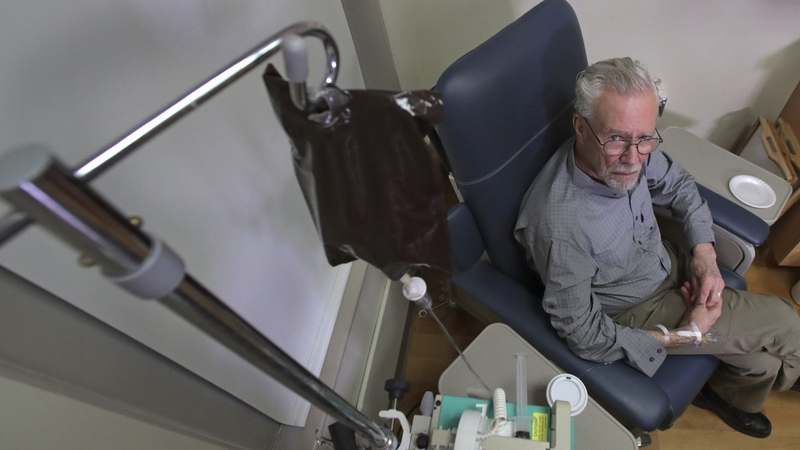
The primary medication to ease back mental decline because of Alzheimer’s infection has left researchers split over its adequacy, as per a report.
The medications’ designers stopped two studies not long ago on the grounds that it didn’t appear to be working, at that point did a staggering turn around in October and said new outcomes recommended it was effective at a high portion.
During Thursday’s introduction at an Alzheimer’s meeting in San Diego, the engineers of new medication aducanumab persuaded a few specialists that the medication merits genuine thought, The Associated Press announced.
Alzheimer’s patients and families are frantic for any assistance, regardless of how little, including pressure the Food and Drug Administration (FDA) to affirm something.
Yet, with clashing outcomes, “I don’t see how you can conclude anything other than that another trial needs to be done,” said the Mayo Clinic’s Dr. David Knopman, who was engaged with one of the studies.
Laurie Ryan, a dementia researcher at the National Institute on Aging, concurred: “We need more evidence.”
Different specialists who counsel for the medication’s engineers cheered the outcomes.
Dr. Paul Aisen, a dementia master at the University of Southern California, said they were “consistent and positive” in indicating an advantage at a high portion – “a truly major advance.”
Aducanumab intends to support the body clear hurtful plaques, or protein bunches, from the cerebrum. Cambridge, Mass.- based Biogen is creating it with Japan’s Eisai Co.
In any case, favoring a medication that isn’t really powerful could open patients to money related and medicinal dangers and give different drugmakers less motivation to grow better medicines.
The producers of aducanumab attempted two investigations, each selecting around 1,650 individuals with gentle psychological weakness or mellow dementia from Alzheimer’s.
Those with a quality that raises their danger of the infection were begun a lower portion since they are bound to experience the ill effects of medications that target plaque.
However, as the studies went on and worry about this symptom facilitated, the principles were changed to give such patients a chance to get a higher portion.
Disclaimer: The views, suggestions, and opinions expressed here are the sole responsibility of the experts. No A News Week journalist was involved in the writing and production of this article.
